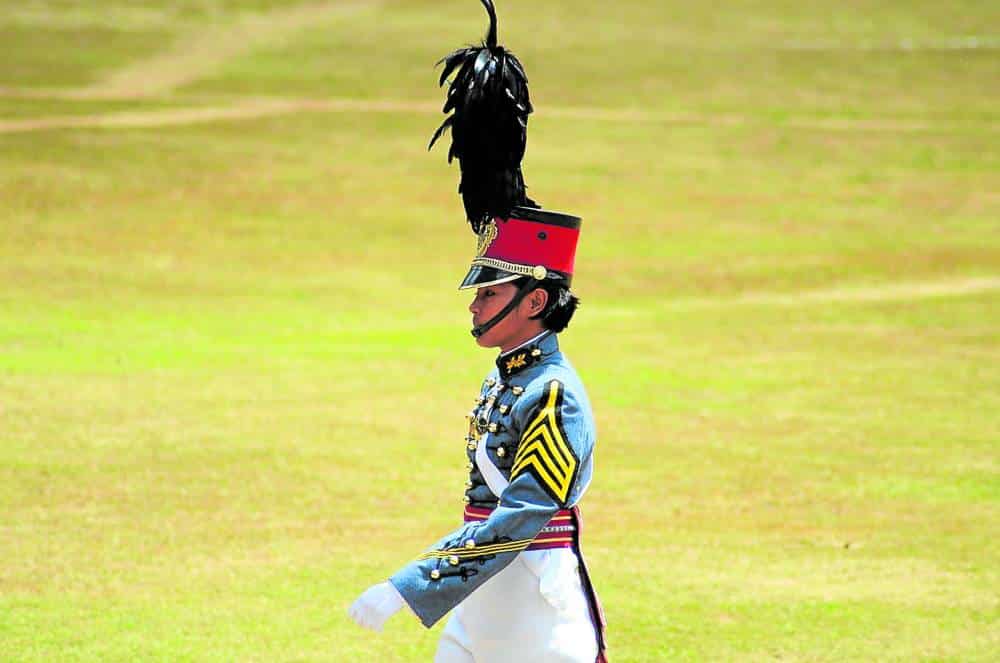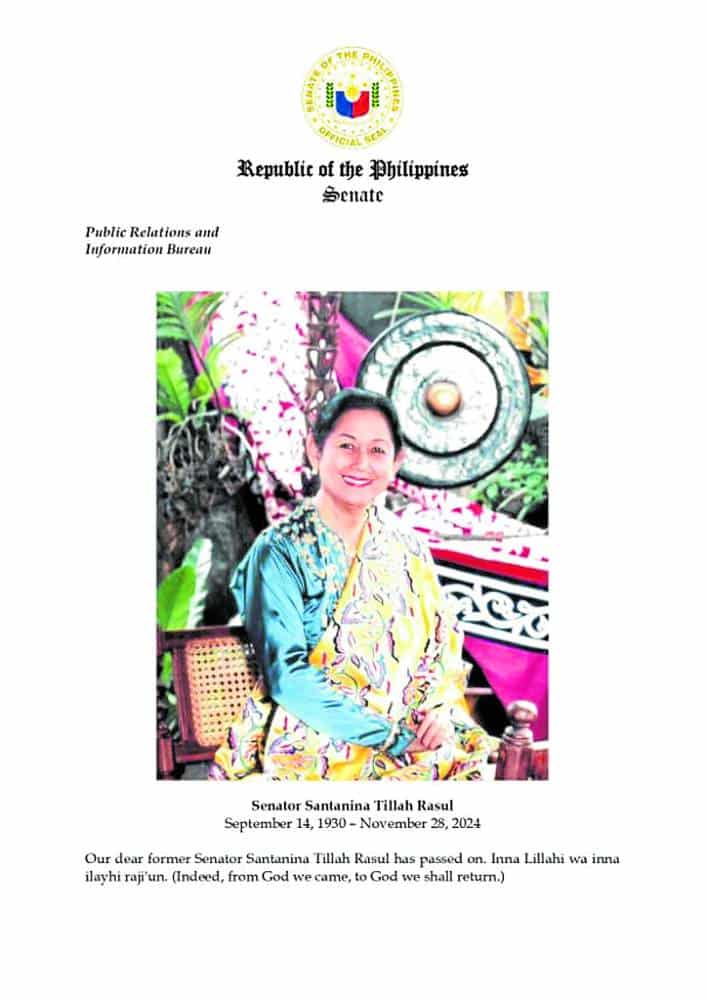PMA: 764 female military officers owe careers to Rasul

WOMEN ON TOP Republic Act No. 7192 authored by Santanina Rasul and Raul Roco paved the way for the military to take in women, beginning with the Philippine Military Academy (PMA), where they were not treated or trained differently. Like her male classmates, Dionne Mae Umalla (in photo) underwent all the exercises and traditions of the academy and topped her PMA “Mabalasik” Class of 2019 as valedictorian. —EV Espiritu
BAGUIO CITY, Philippines — The 764 female graduates of the country’s premier military school owe their careers as top military officers to the late Sen. Santanina Rasul, who died this week at 94, according to the Philippine Military Academy (PMA).
Rasul authored Republic Act No. 7192, or the Women in Development and Nation Building Act, the so-called mother of all Philippine laws on women, which allowed women to be assigned to combat or frontline duties and to attend military schools.
Rasul “left an indelible mark in the fabric of our nation,” said PMA public affairs officer Navy Lt. Jesse Nestor Saludo in a statement released on Saturday.
READ: Santanina Rasul, nation’s first and only woman Muslim senator; 94
The law “paved the way for the entry of women [to] PMA that significantly shaped our armed forces as it is today, a professional military organization capitalizing on inclusivity and diversity within its ranks,” Saludo added.
Article continues after this advertisementLimited roles
Before the enactment of RA 7192 in 1992, women were limited to noncombat and administrative roles in the military under RA 3835.
Article continues after this advertisementSection 7 of RA 7192 states: “Any provision of the law to the contrary notwithstanding, consistent with the needs of the services, women shall be accorded equal opportunities for appointment, admission, training, graduation, and commissioning in all military or similar schools of the Armed Forces of the Philippines and the Philippine National Police … in accordance with the standards required for men except for those minimum essential adjustments required by physiological differences between sexes.”
Colonels, pilots
Saludo said Rasul’s legacy continues to live on through the female graduates of PMA at Fort del Pilar here, now tallied at 764.
The first set of female cadets who graduated as members of “Kalasag Lahi” Class of 1997 are now colonels, fighter pilots and ship captains: Navy Capt. Marissa Arlene Andres-Martinez, Army Col. Maria Victoria Blancaflor, Army Col. Leah Lorenzo-Santiago, Air Force Col. Ma. Consuelo Nunag-Castillo, and cavaliers who retired from service Aileen Somera-Reyes, Sheryl Uy-Cabasan and Arlene Orejana, wife of Sen. Antonio Trillanes IV, who is now a teacher.
They were part of the original 16 females who were integrated into the Corps of Cadets for the first time since PMA started training future military officers as the Academia Militar in 1898, as a constabulary officers’ training school that was relocated to the summer capital in 1908, and formally as the military school in 1936.
Class of 2024
This year, Army 2nd Lt. Jeneth Elumba, the daughter of Surigao del Norte farmers, was the class valedictorian of the 278-strong “Bagong Sinag” Class of 2024, alongside 53 other female graduates.
Elumba was the latest PMA female graduate to top her class after the late Navy Lt. Arlene dela Cruz broke the glass ceiling. Dela Cruz, who graduated valedictorian of “Masikhay” Class of 1999, died in a car accident in 2008.
Some of the first female cadets have been invited to lecture on gender politics in PMA’s continuing evolution, and have served in the interim as members of the Corps of Professors like Orejana-Trillanes and Andres-Martinez.
During the 20th anniversary of the incorporation of women cadets into the Cadet Corps, Andres-Martinez said they initially confronted a frosty reception from their counterparts and some teachers who were uncertain how PMA needed to change to accommodate females.
Longer hair
In 2008, for instance, then PMA superintendent, retired Gen. Leopoldo Maligalig, allowed female cadets to grow their hair longer than male cadets.
But except for these logistical requirements, including the separation of women’s barracks, PMA did not need to adjust military training and academic classes for the female cadets at all, Andres-Martinez had said.
“No rules were changed and women were trained the same way as their male counterparts. That has not changed in 20 years,” she said in an Inquirer story published on March 7, 2017.
